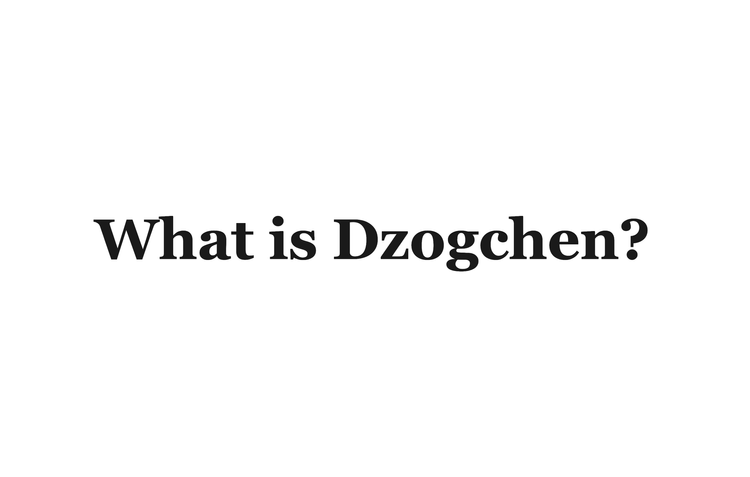Innate value vs. earned value

In the Mahayana Buddhist traditions, there are two ways of speaking about our true nature: the naturally abiding disposition (Tib. rang bzhin gyi gnas rigs) and the unfolding disposition (Tib. rgyas 'gyur gyi rigs).
The naturally abiding disposition is the unadorned nature of our own mind, our primordial condition. When we are resting in the natural state, we are connecting with this naturally abiding disposition, our true nature just as it is, completed naked and unfabricated. This aspect of our true nature represents the basic dignity or innate value (Tib. gdod nas bzang po) of not only the human condition, but indeed all life.
The unfolding disposition is the aspect of our true nature that grows and develops over time based on our thoughts, words and actions. It is the accumulation of all of our merit and wisdom that ripens as our body of work in this life. It represents the lived aspect of our true nature, expressed through acts of kindness, generosity, compassion and insight.
In the West and really throughout much of the world, we can easily identify this unfolding disposition as the earned value of our actions. We place heavy emphasis on what we do and say, the way we walk and talk, our relationships and work. We mistakenly think that if we can prove our worth through our work, then our life will be meaningful and of value and we will somehow discover our innate value. We try to go backwards in the process, proving that we can earn our value first, then trying to see our innate value.
But we never really get there.
No amount of work and effort will ever be good enough. There is always something more, or better, that we can do.
It is tempting when honoring our potential and trying to discover our true nature to focus on the work. Our culture encourages this sort of effort and elevates the status of those who are successful in their endeavors.
But the process doesn't work backwards. You need to discover your natural condition just as it is, and to recognize your innate value. Recognizing your innate value, you simultaneously discover a vast treasure trove of gifts to share– gifts of kindness, patience, generosity, compassion and insight.
Recognizing our innate value, our earned value is ensured as a natural wellspring, just like releasing a dam brings with it a steady flow of water that nourishes the landscape in its path.
Recognizing our own innate value or basic dignity, we can also recognize it in others, giving them perhaps the most important gift of all: the gift of being seen as they are.




